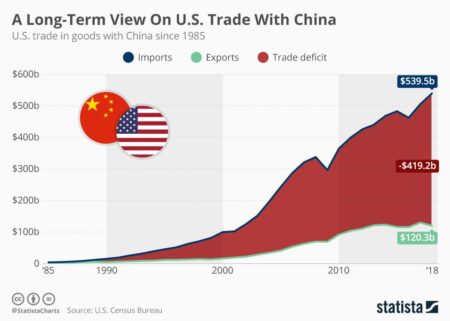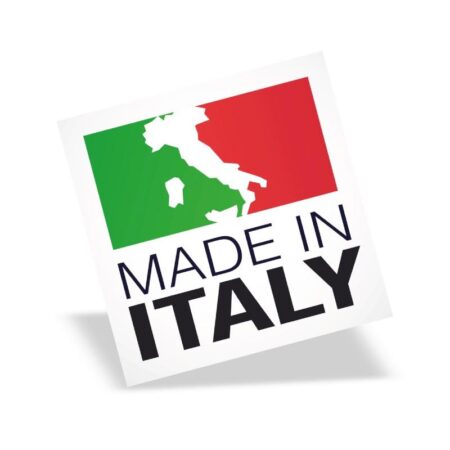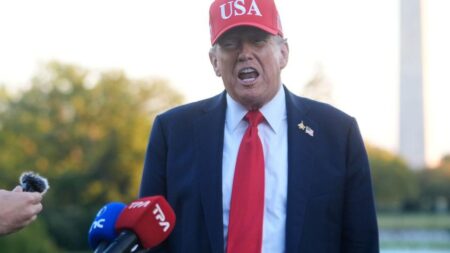Economists warn that a flood of affordable Chinese imports could push UK inflation lower, offering much-needed relief to consumer prices amid these uncertain economic times. This surge highlights the remarkable influence of global trade in shaping domestic inflation trends
Browsing: global trade
Hanseatic Global Terminals and Hapag-Lloyd have announced thrilling plans to build a cutting-edge greenfield container terminal in Brazil, poised to dramatically boost capacity and champion sustainable shipping innovations across the region
One of India’s wealthiest states is raising a red flag, warning that U.S. tariffs introduced during the Trump era are inflicting “irreparable damage” on its economy. It urges immediate action to protect crucial trade and investment ties, The Economic Times reports
Made in China’s success story is no sure thing,” reveals a new Reuters podcast, shining a spotlight on the growing challenges-from supply chain disruptions to soaring labor costs-that threaten to upend the nation’s manufacturing dominance
India and Italy have supercharged their strategic partnership, paving the way for an exciting surge in trade, technology, and sustainable development. This powerful collaboration aims to spark economic growth and fuel groundbreaking innovation across key industries
The United Kingdom stands tall as a global trade powerhouse, exporting an impressive array of goods from cutting-edge machinery to advanced vehicles. Its most dynamic trade links span the EU, the US, and China, highlighting a thriving network of international economic partnerships, reports The Observatory of Economic Complexity
China-France economic and trade cooperation acts as both a steady “ballast” and a powerful “propeller” in their bilateral relationship, not only grounding their ties but also driving dynamic growth, officials told the Global Times amid rising global uncertainties
Copper prices eased off their record highs as a colder winter in China, the world’s largest consumer, dampened demand. A slowdown in industrial activity fueled concerns over sustained metal consumption, sending shockwaves through global markets
Canadian potash powerhouse Nutrien is gearing up to transform its export game with a cutting-edge new terminal in the U.S., completely bypassing British Columbia. Officials say this daring shift will supercharge operations and open the door to quicker access to key markets
China’s potential decision to halt rare earth exports to Japan could send shockwaves through global supply chains, escalate geopolitical tensions, and trigger significant economic fallout, Bloomberg reports
The US is accelerating its efforts to lock in a rare earths supply deal with China, fueled by growing concerns over potential disruptions that could threaten key technology and defense industries-highlighting an escalating struggle for dominance over these essential resources
Canada’s new budget boldly charts a course away from dependence on a single market by expanding trade partnerships and turbocharging domestic industries. This dynamic strategy aims to forge a stronger, more resilient economy ready to thrive amid global uncertainties
Top diplomats from G7 nations convened in Canada amid escalating trade tensions with the Trump administration. Sources reveal that this pivotal meeting aims to ease conflicts and forge stronger economic partnerships
America’s chip restrictions are intensifying the pressure on China’s tech industry, triggering significant supply chain disruptions and slowing the pace of innovation. As The Wall Street Journal reports, these hurdles are growing just as Beijing scrambles to discover new breakthroughs
China is gearing up to resume exports of Nexperia chips, Dutch Prime Minister Mark Rutte announced, sparking a wave of relief amid growing global concerns over tech supply shortages. This move is poised to send ripples through the semiconductor market like never before
China’s latest clampdown on rare earth exports is sending shockwaves through global markets. Traders are rapidly reshuffling their portfolios as fears of tightening supply escalate, highlighting just how crucial these critical minerals are to the global economy
U.S. Trade Representative Greer announced that tariffs on Chinese goods could be implemented sooner than anticipated, signaling escalating tensions in the intense trade showdown between the world’s two largest economies
The iconic ‘Made in Italy’ label stands at a pivotal crossroads, facing fierce global competition, a flood of counterfeit goods, and skyrocketing production costs that threaten its cherished legacy. Experts are now asking: Is this symbol of unparalleled craftsmanship truly in jeopardy?
Australia (AUS) shines with a dynamic trade landscape, exporting abundant minerals and vibrant agricultural products while importing state-of-the-art machinery and electronics. Partnering closely with economic giants like China, Japan, and the United States, Australia plays a crucial role on the global stage
Former President Trump has fired a bold warning shot, threatening fierce trade war retaliation after China rolled out new restrictions on rare earth exports. This dramatic move escalates the high-stakes battle over vital mineral supplies that fuel U.S. technology and defense industries




















